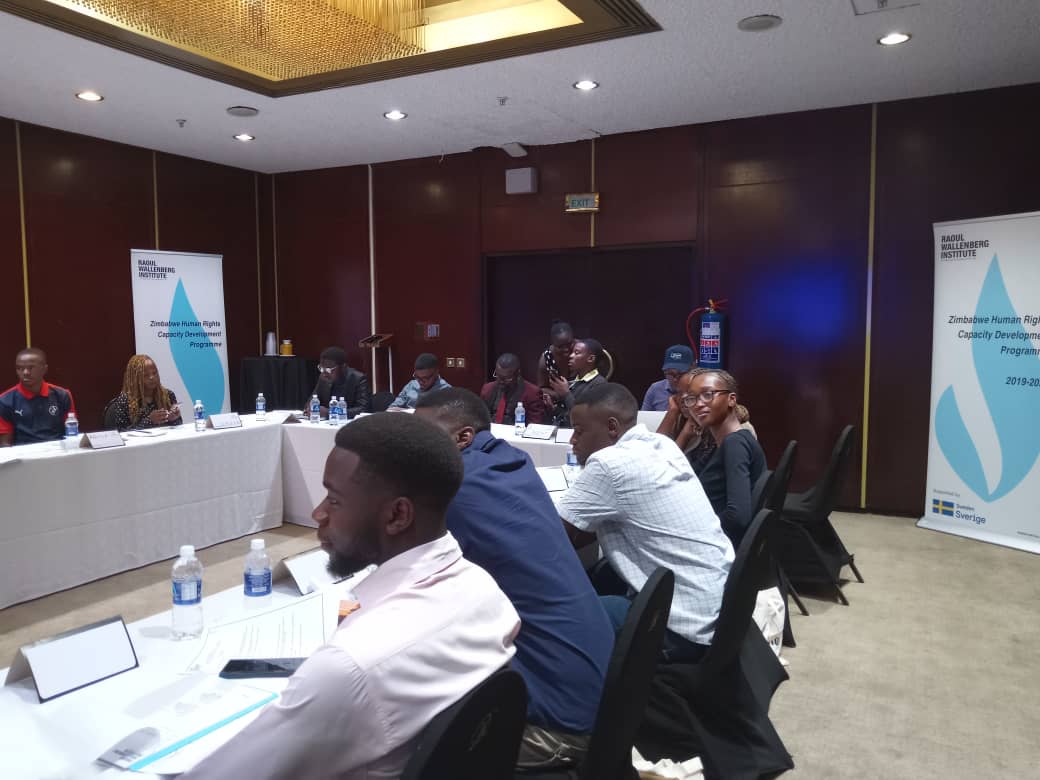|
Getting your Trinity Audio player ready…
|
All is set for Zimbabwe’s international humanitarian law moot court with finals earmarked for the High Court on Friday where competitors will battle it out for the coveted first prize.
In her remarks, Tamalin Bolus, the Legal Advisor of the International Committee of the Red Cross at the Pretoria Regional Office, said Zimbabwe is privileged as the only country with a moot court in Southern Africa.
“Participation in this moot court is important because it prepares you for a career in the international humanitarian law space. For you to succeed in this area, you need to be focused on passion and perseverance to succeed,” Bolus told participants.
Simon Chivizhe, a senior partner with AB&David Lawyers for Business and Projects in Africa trained participants on what is expected of them in order to win the moot competition, particularly on advocacy and legal drafting skills.
Sharing his experiences in previous editions, Tadiwa Chipunza said the Moot Court Competition is exciting, exhilarating, and an emotional roller coaster.
“In participating in this competition, you are not only making history for yourselves but your institution and the country. Ultimately, there are no losers or winners. It’s a learning experience. There is no need to worry if the team doesn’t make it to Arusha, Tanzania.
Mooting improves the employment prospects. Employers give preference to mooters. During our time, we looked up to the likes of Ashley Muza. Bear in mind that the Moot Court is challenging and demanding. It can be more taxing than preparing for an examination. I enjoyed the learning experience. It improves advocacy and the ability to have a sharp eye for detail. Composure is a key ingredient for advocacy. It also teaches legal research and drafting. As they say, the devil is in the detail so one should be thorough in research,” Chipunza said.
Another member of the alumni, Dumisani Zimbwa, who is an intern with ICRC, said the moot gives an opportunity for exposure to international humanitarian law.
“I went to Arusha, Tanzania. I developed more knowledge about international humanitarian law. When going into the competition, compete less and enjoy more. Be in the game and focus. Anxiety can throw you off. The moot also builds social capital. When I went for an interview for a job placement, I had an advantage over others because of my experience in the moot,” Zimbwa said.
Raoul Wallenberg and ICRC are jointly organising the moot.
Ashley Muza, an intern with Raoul Wallenberg said there is a need to prepare for the moot.
“There are lots of takeaways from the moot. This moot is more practical. Students learn how to draft legal documents, and how to present themselves to the legal bench. When arguing, pick important points for a particular legal issue. Be polite, and stick to ethics.
“It’s a learning curve to prepare yourself. This is a real experience of what to expect in legal practice. My experience of role-play means you get into a certain character you are given. There is a need to know the language of the role that you are going to play. You also need to work as a team. No need to panic. No need to outshine teammates. There should be cohesion. Consult the co-counsel for clarification. The strength of the wolf is in the pack,” she added.
